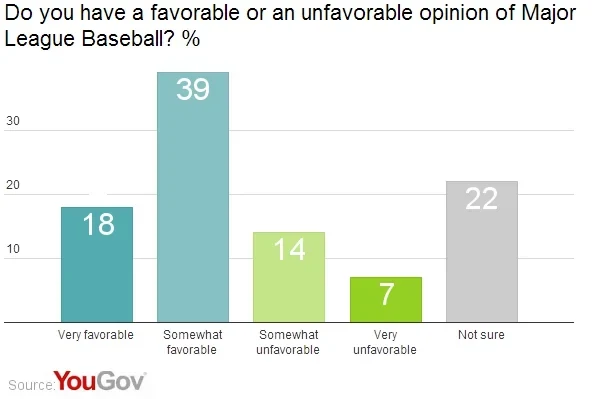Fans of baseball are divided over who they want to win the World Series, but just under two thirds of the broader public have no preference.
With the opening game of the World Series taking place tonight between the American League’s Boston Red Sox and the National League’s St. Louis Cardinals, the latest Economist/YouGov polls finds a country pretty much evenly divided over which team they hope will become this year’s World Champions.
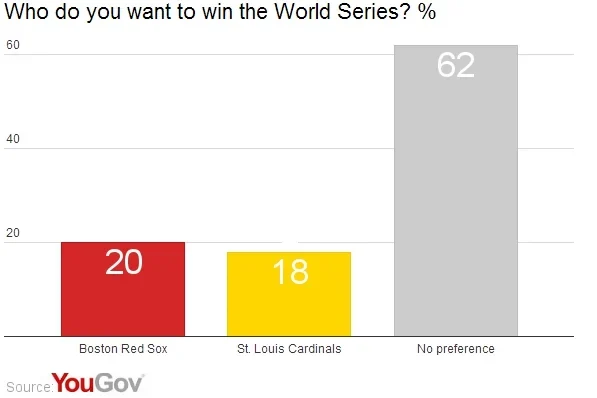
Nearly two in three adults don’t have a preference – most likely because many simply haven’t been following the playoffs: nearly half (47%) admit they are paying no attention at all to the World Series. But even among those who have paid attention, 43% have no preference for a World Series winner, and fans of each of the two teams are pretty much equal in number.
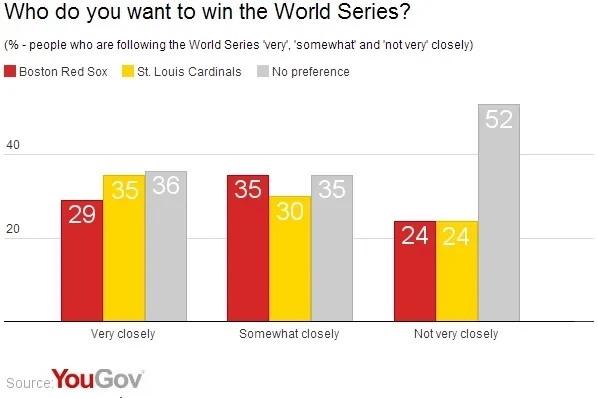
Just a small part of the public – 11% -- has been following the playoffs very closely. Those in the Northeast and the Midwest – the home regions of the two league champions – are a little more likely to be following the contest. Even among this very attentive group, however, more than a third don’t have a preference, though the Cardinals have a slight edge.
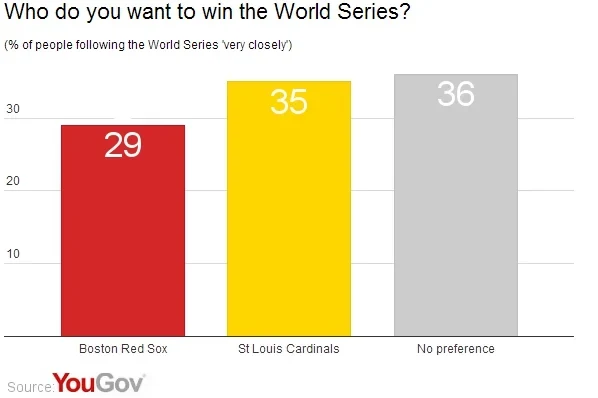
People in the Northeast care the most about the World Series: more than a third have been following the playoffs very closely. More than half also have some sort of favorite for the World Series, with the Sox holding a 15-point lead in their home region. Midwesterners are less regionally partisan, however, with only a narrow edge for St. Louis. Southerners are closely divided, and the West gives the Boston the the benefit of the doubt. But in the South and West, 67% of adults have no preference. In the Midwest, 65% don’t care.
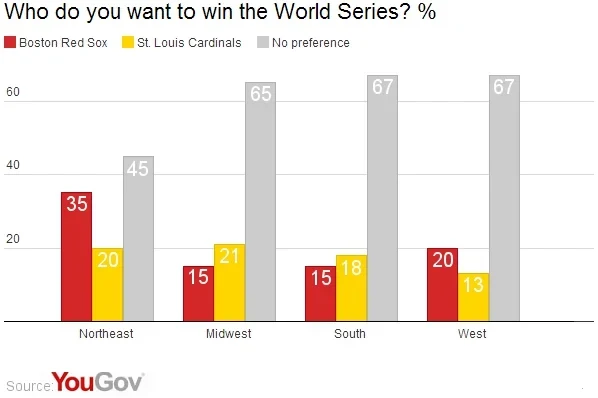
The better-off and the better-educated like the Red Sox; Republicans favor the Cards 25% to 19% (Massachusetts is, after all, a very “blue” state). Most other groups are closely split.
Even though many Americans aren’t paying much attention, Major League Baseball gets generally positive ratings from the public. Most are favorable towards MLB; just one in five are not.
